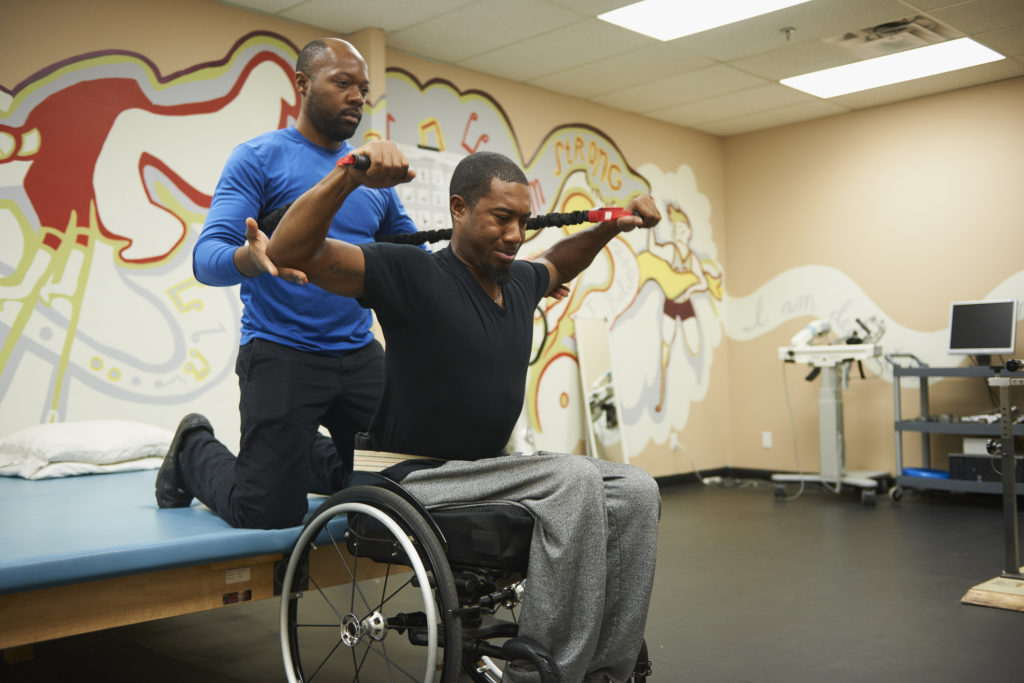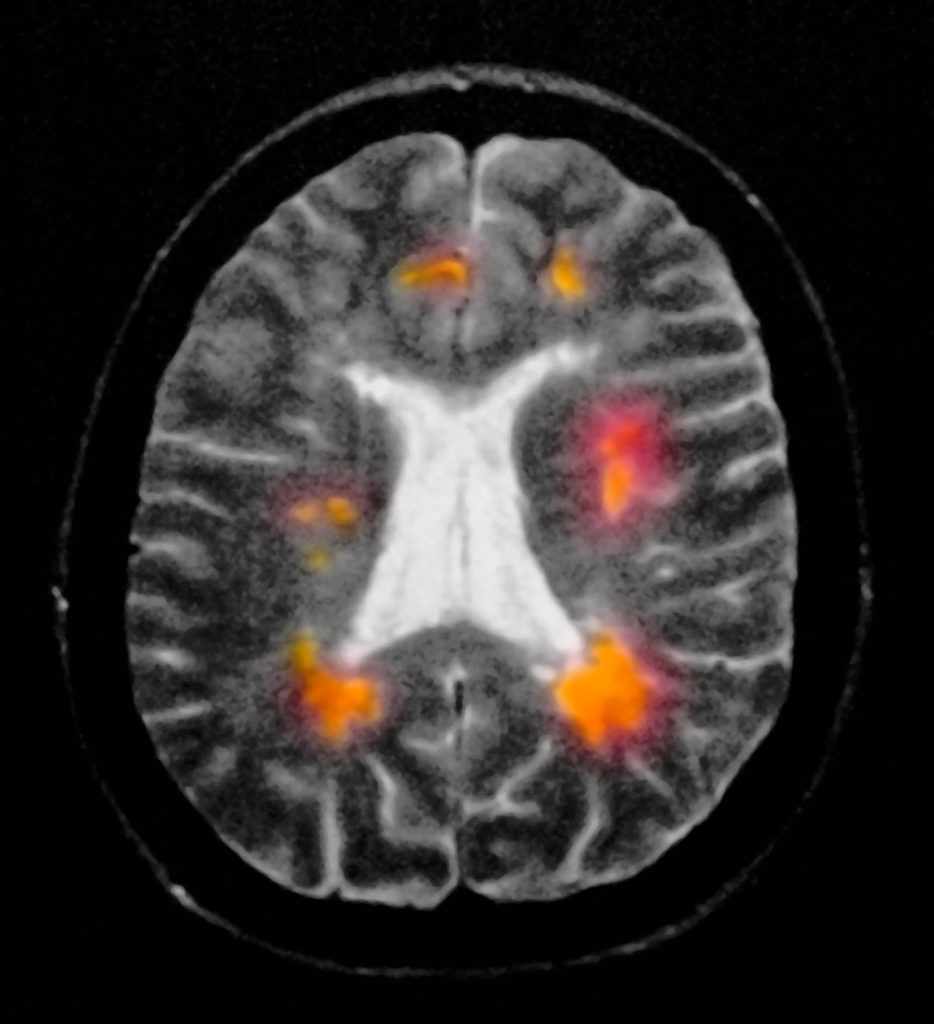
For many, Multiple Sclerosis (MS) seems to strike without warning.
*This is a true story, only the name was changed to protect the privacy of the MS patient. *
On February 16, 2015, Jamal was a 37-year-old black man who was thoroughly enjoying his life. As a part of his job, he tested new Nike products. Jamal loved long distance bicycling trips, running, basketball, football and hiking. He looked and felt in the best of health as he and his long-term girlfriend decided to finally set an official wedding date. Having babies was next on their short-term agenda.
On February17, 2015, like every other morning, Jamal woke up to the song he’d selected
for his phone’s alarm. That was the last thing he remembered before discovering he could not walk. He described his leg as feeling like a thousand-pound weight attached to his body. Following a battery of tests, four days later, Jamal was finally diagnosed with Multiple Sclerosis. A MRI showed a multitude of lesions on his brain and spine. Jamal had obviously had MS a very long time without experiencing any symptoms at all!
In later days, during an in-depth conversation with his neurologist, Jamal remembered a bout with what was thought to be eye problems fifteen years earlier.

After suffering with double vision for a few days, he’d gone to a doctor but only been referred to an ophthalmologist instead. He remembered some back aches and pains but nothing he thought excruciating enough to warrant medical attention. Unfortunately, Jamal’s doctors never realized they were looking at symptoms of MS.
A FEW FACTS ABOUT MS
Most people with MS experience their first symptoms between the ages of 15 and 50.
According to MASA (Multiple Sclerosis Association of America) as of 2019, there are currently about one million people living with MS in the United States.
More women are diagnosed with MS than men. African Americans who develop MS have a later-age onset of the disease than Caucasians and are more likely to develop mobility problems.
Multiple sclerosis in African Americans progresses much faster than in Caucasian patients, new research reports.
Studies indicate MS in African-American men is a predictor for more severe forms of MS.
WHAT IS MS?
Multiple Sclerosis is a progressive, immune-mediated disorder. That means the system designed to keep your body healthy mistakenly attacks parts of your body that are vital to everyday function. The protective coverings of nerve cells are damaged, which leads to diminished function in the brain and spinal cord. MS is a disease with unpredictable symptoms that can vary in intensity. While some people only experience fatigue and numbness, severe cases of MS can cause paralysis, vision loss, and diminished brain function.

Common early signs of multiple sclerosis (MS) include:
• vision problems.
• tingling and numbness.
• pains and spasms.
• weakness or fatigue.
• balance problems or dizziness.
• bladder issues.
• sexual dysfunction.
• cognitive problems.
HOW IS MS DIAGNOSED?
A doctor, most likely a neurologist, will perform several tests to look for damage to the central nervous system.
A neurological exam to check for impaired nerve function. An eye exam to evaluate your vision and check for eye diseases. A MRI to create cross-sectional images of the brain and spinal cord. A spinal tap to remove a sample of fluid circulating around your brain and spinal cord.HOW MANY DIFFERENT CATEGORIES OF MS ARE OUT THERE?
Relapsing-Remitting MS
Most people with multiple sclerosis, around 85%, have this type.
They usually have the first signs of the disease in their early 20s. After that, they have attacks called relapses from time to time, followed by weeks, months, or years of recovery (called remissions). The degree of recovery, and the time between relapses can all vary widely from person to person.
Secondary Progressive MS
Secondary Progressive Multiple Sclerosis is tough to treat, and the disease can be hard to handle day to day. Symptoms get worse at a different rate for each person. Treatments work moderately well, but most people will have some trouble using their body like they used to. After living with relapsing-remitting MS for many years, eventually most people will get secondary progressive MS.
Primary Progressive MS
In Primary Progressive MS the disease gradually gets worse over time. There are no well-defined attacks of symptoms, and there is little or no remissions. In addition, MS treatments don't work as well with this type of MS. About 10% of people with MS have this type.
TREATMENTS AVAILABLE
There are more than a dozen disease modifying therapies approved by the U.S. Food and Drug Administration (FDA) to treat all types of MS.
Each drug has an indication from the FDA for the type of MS it can be used to treat. Infusions, tablets, daily, weekly or monthly injections are all currently being used. Unfortunately, there are currently more treatments available for relapsing forms of MS than progressive forms but scientists around the world are actively working to find more effective treatments for progressive forms of MS. That is one reason donating to Multiple Sclerosis research is very important. There’s always an urgent need for new treatments and drugs to be formulated.
Jamal was eventually diagnosed with Primary Progressive Multiple Sclerosis. With much difficulty, he still continues to walk but only with the help of mobility aids. Jamal now lives in a supportive living environment and continues to cope with cognitive difficulties, fatigue, memory problems, bladder issues and, not so surprisingly, profound depression. Originally prescribed with monthly infusions of a drug named Tysabri, he’s now changed to getting Ocrevus infusions every 5-6 months. The intent is to try to keep more lesions from forming on his brain or spine.
Managing Multiple Sclerosis is an ongoing process beginning with the first symptoms and continuing throughout the course of the disease. If you are already a sufferer, it is never too late to access high quality care. Know what to look for, where to find it and how to work effectively with your doctor and other health care professionals is essential to your health, wellness and quality of life. Learn more at nationalmssociety.org









